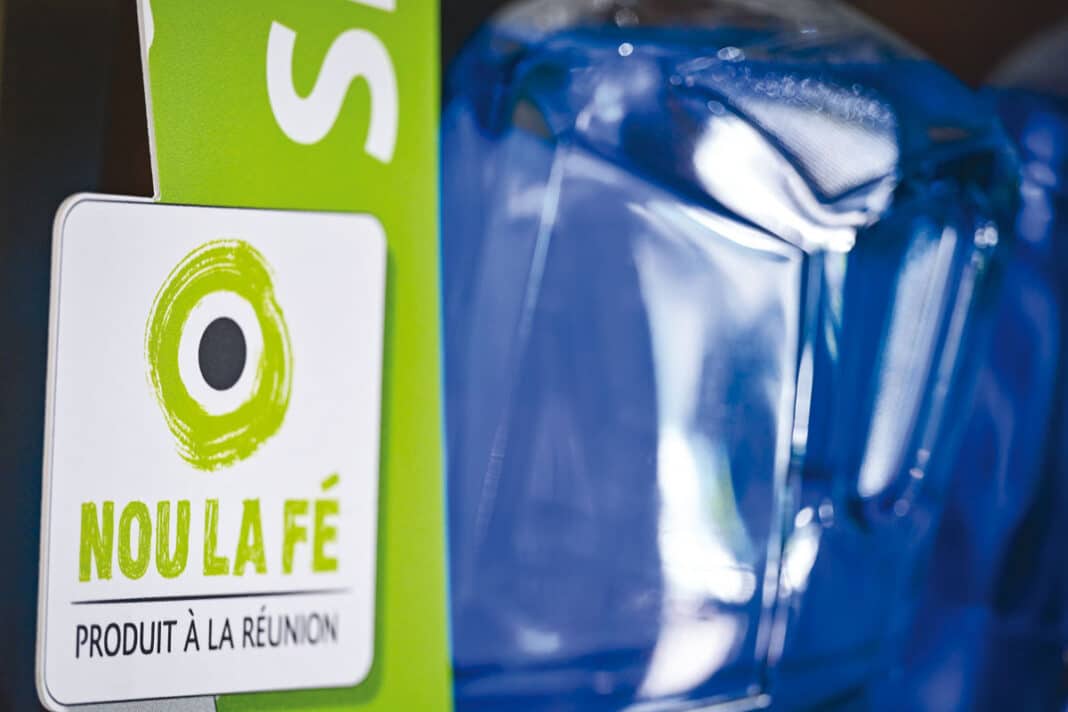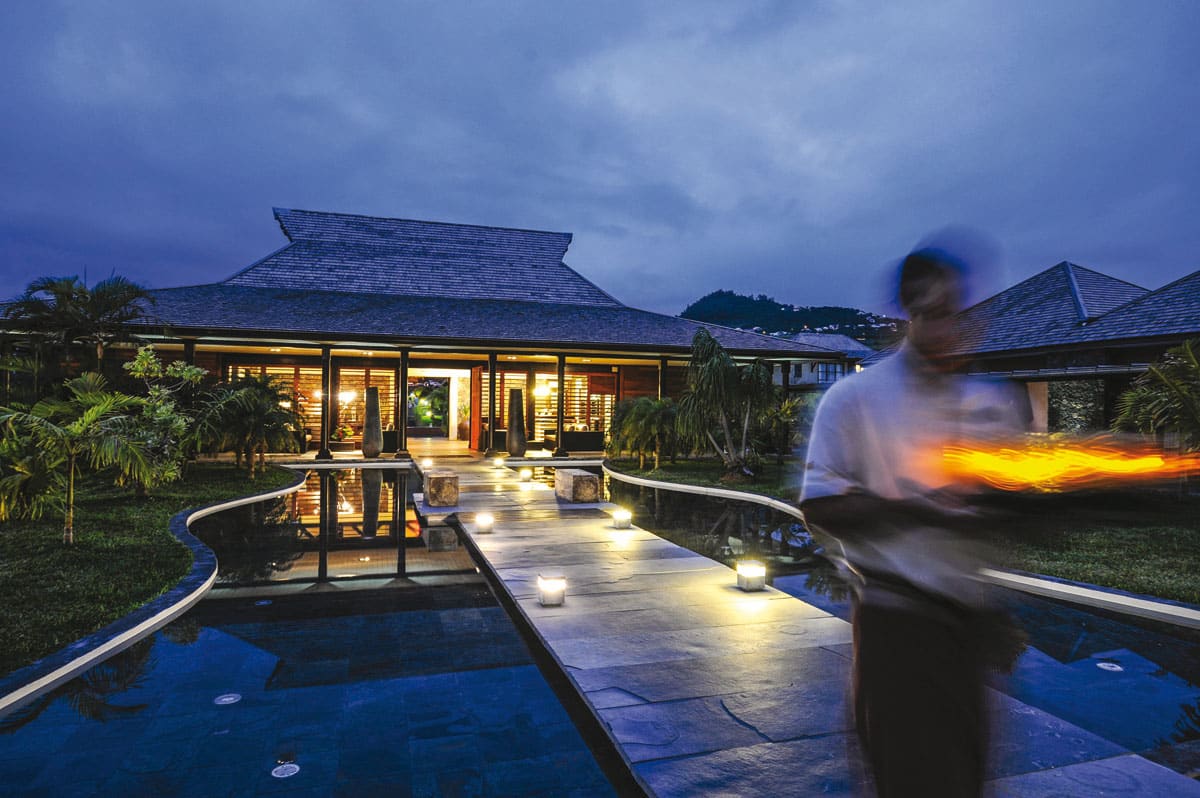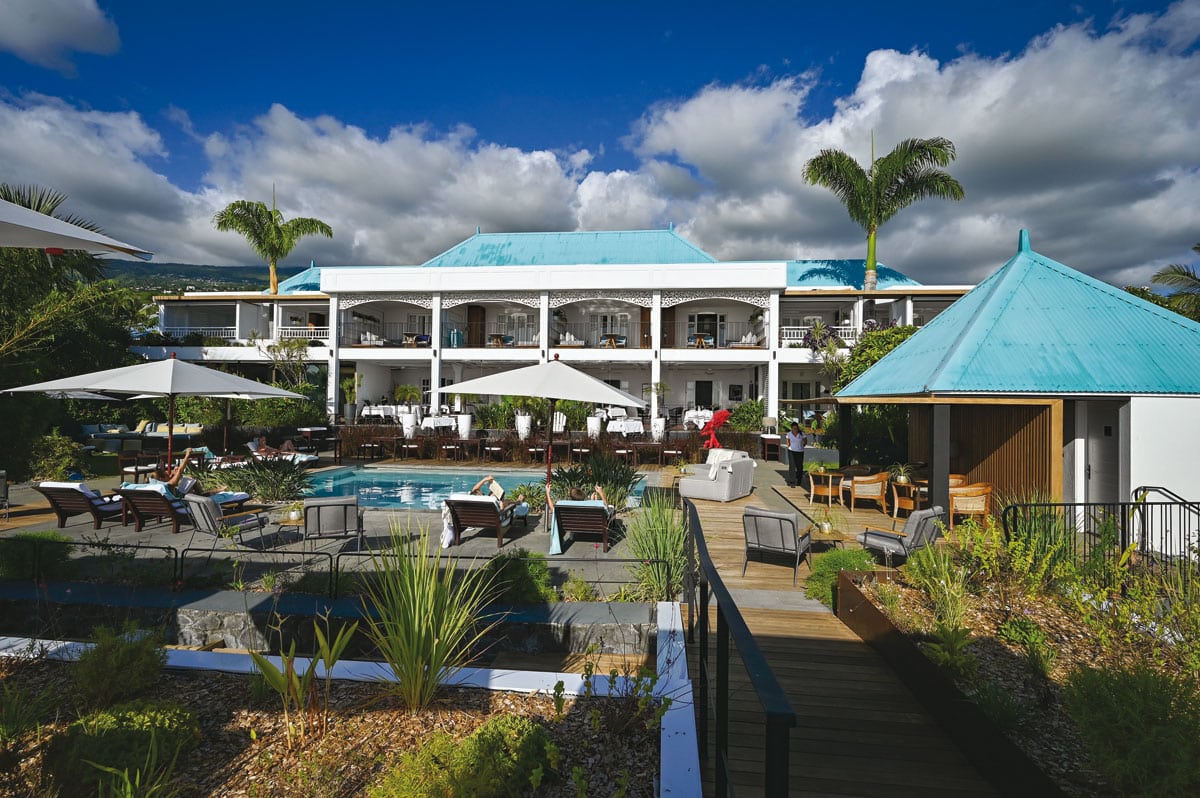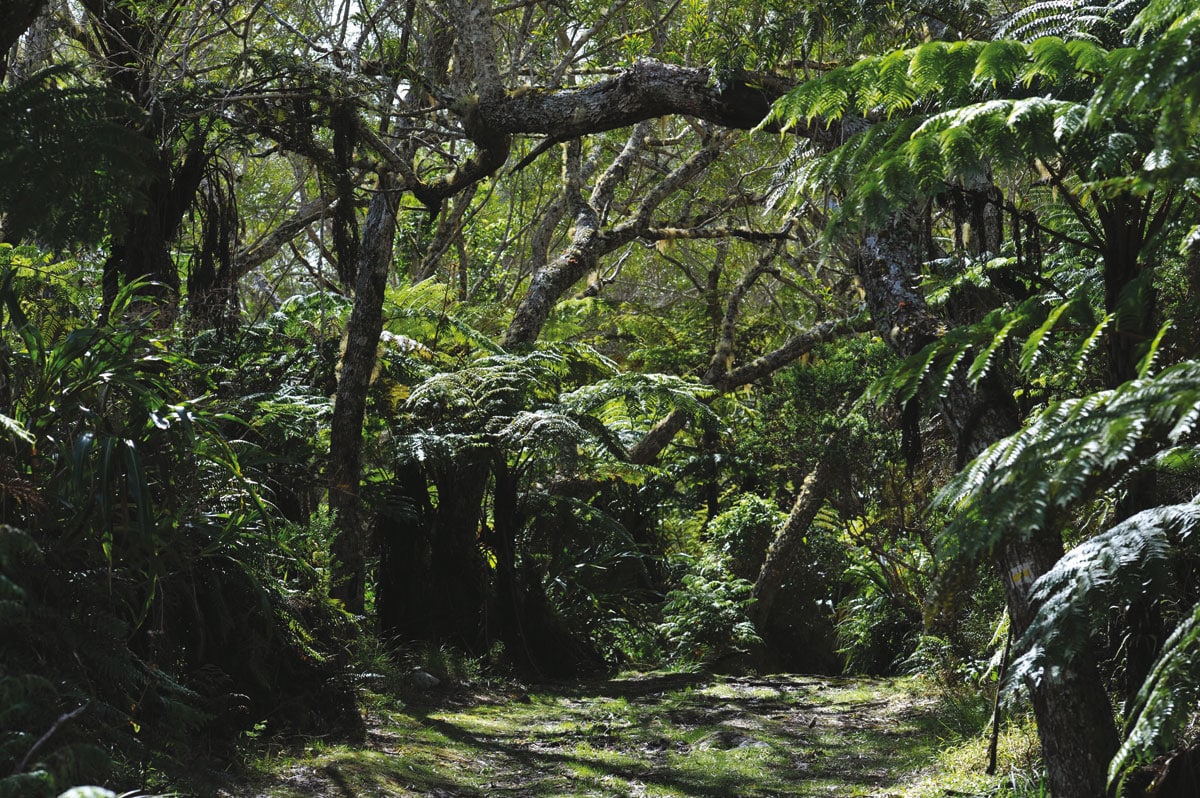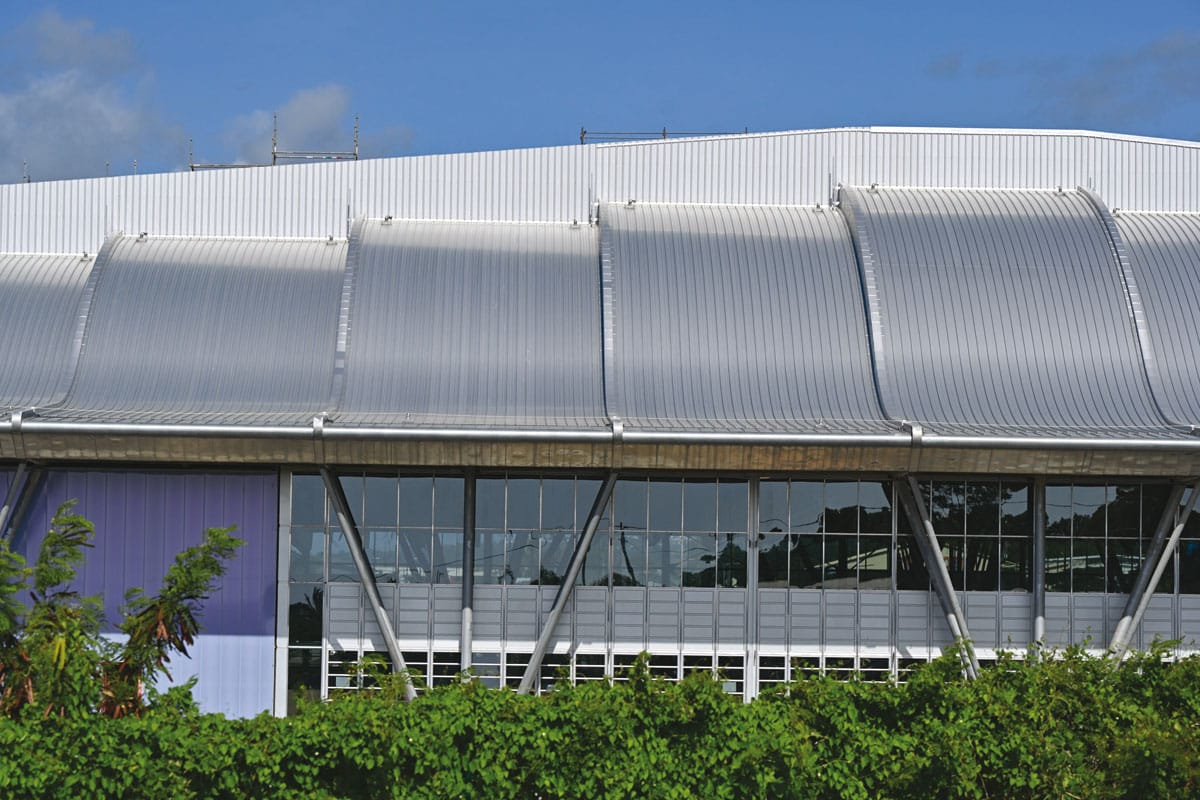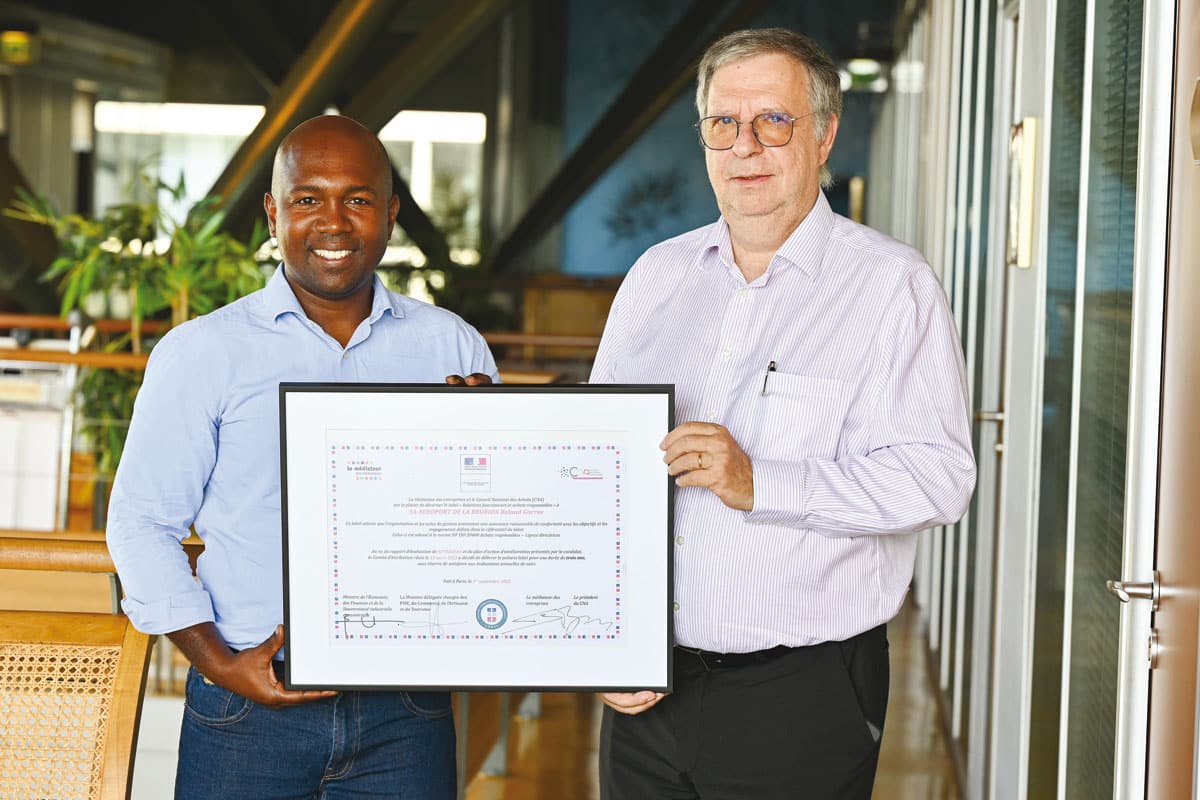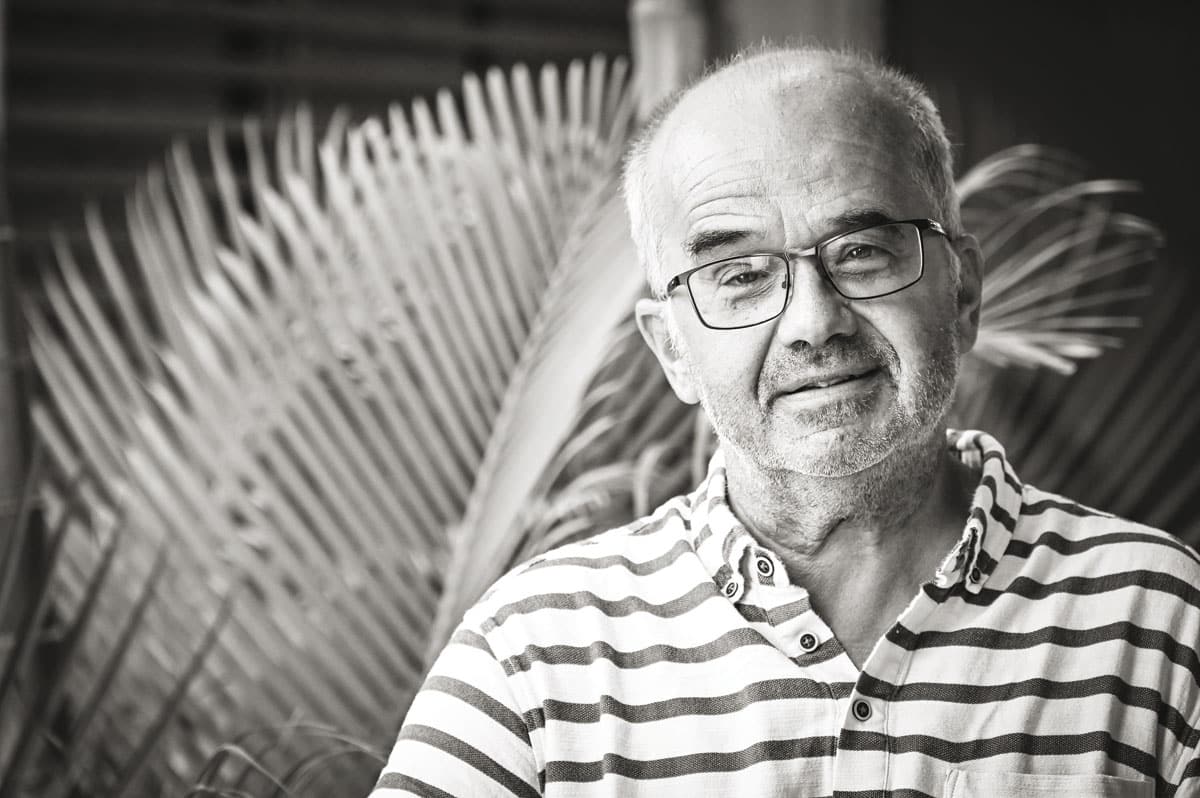Nou la Fé for production, Ecolabel for the hotel industry, Spirit of the Park for partner companies of the national park, RFAR (responsible purchasing) for Roland-Garros airport : four examples of the dynamics of the labels that Reunion economic players appropriate to inform their customers of what they are and do. Pioneer of this entire Reunion labeling movement, New Faith, the identification mark of local production born in 2009, deepens the local commitment requested from its beneficiaries by renewing its conditions of attribution. She has made this known through a communication campaign since mid-March.
Reunionese production, food and non-food, remains an import-substitution industry. Fighting against imported products, it directly and indirectly supports 18,000 people. Recalling this through a collective brand – Nou la fé – still has just as much meaning in 2023. Also Nou la fé has been back on the campaign trail since March 16 to reaffirm its fundamental values while highlighting its evolution. Nou la Fé today claims the character of a “territorial label” reflecting the impact of businesses (environmental, societal, etc.) on the territory. “The Nou la fé companies are in an approach that is not just commercial, » would like to emphasize Ania Van Den Cruys, presenter of the Nou la Fé brand, which reminds us that “the brand is not reserved for industrial producers or ADIR members” and that it “now takes into account many more criteria than just the Reunion origin of the product.”
A short circuit label
By focusing for the first time on the B to B offer, the brand's 2023 communication campaign also shows Nou la Fé in a different light : that of a label from the Reunion short circuit. Non-food producers now represent half of the beneficiaries, and citizen purchasing makes as much sense in B to B as in consumer products. This is the message. « Product availability, fast delivery, verifiable quality, limited or custom production, freight and storage costs eliminated : Nou la Fé expresses all the advantages of the short circuit for businesses”, argumente Ania Van Den Cruys. Nowadays, all food and non-food sectors combined, 116 brands and more than 5,000 products are stamped Nou la Fé.
New Faith, a territorial label
Announced last October, the strengthening of the conditions for attribution of Nou la Fé in fact gives the collective brand the level of requirements of a label. The local production indicator, attested by the degree of processing and an added value of at least 20%, remains the basis of the attribution. But the evaluation of the first Nou la Fé is no longer enough. Become more numerous (30 mandatory and six complementary among 18 proposed indicators), economic criteria, commercial, social, societal, environmental, are now controlled by an independent auditor. Independence guaranteed by an external “brand secretariat”, entrusted to a QHSE consultant. This means that the 50 beneficiaries, since 2009, of the brand must retake the exam. The renewal audits began in this first half of the year by the first 27 companies to have received Nou la Fé from 2009.
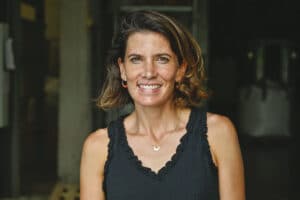
“The renewal that has been granted to us covers all of our ranges of dog and cat food.. An external auditor came. We marked out with him all the criteria of the audit grid and discussed the supporting documents allowing each of the points to be credited.. Additional criteria must be met and we had to work internally to position ourselves on each of these new criteria. »
The European ecolabel, emblem of Reunion hotel excellence
A twelfth establishment in Reunion, Blue Margouillat, has just obtained the European ecolabel. It is on the initiative of Ademe that this European label applied to the tourism sector nourishes a brand image of excellence of the Reunion hotel industry., by demonstrating its continuous improvement approach.
The European Ecolabel is an official ecological label created in 1992 by the European Commission to identify the most environmentally friendly products and services.. In France, Ademe is responsible for its management and Afnor for its certification. The ecolabel has variations in all sectors of activity. In the meeting, drawing inspiration from the example of the first two hotels which engaged in the process and obtained it (the Palm Hotel & Spa from 2014, suivi de l'Iloha Seaview), Ademe promoted this eco-label to the tourism sector in collaboration with Reunion Island Tourism. Launched on the occasion of the 25th anniversary of the ecolabel in 2017, this awareness-raising operation successfully targeted three-star hotels and above. Seven establishments responded to the call for projects and six of them obtained the ecolabel the following year. Six other hotels have joined the label, among the best known and renowned in the area, the very last of which is the Blue Margouillat. Six other accommodations planned to launch, which will then clearly make the European ecolabel the sign of recognition and rallying of the most starred Reunion hotels.
More than sixty criteria
To obtain the ecolabel, an establishment must meet more than sixty compliance criteria. The test requires, among others, reducing water and electricity consumption, waste sorting, quality of life at work, prevention of occupational risks, training staff in eco-friendly practices, the establishment of environmental tutors, etc. As much as the achievements, it is the entire process of continuous improvement that is appreciated, right down to the design of the service and catering offer. Thus the use of local products and partnerships with local environmental associations are part of the approach.. The European ecolabel gives rise to a renewal audit every two years.
The sting of aid for ecolabelling
The use of a specialized design office is recommended to meet European requirements.. The cost of this support is covered by public aid up to 70%.. The certification audit, carried out by Afnor certification, is the responsibility of the company. To finance this audit, the company can call on the sustainable tourism fund set up by the government as part of France Relance. This fund aims to encourage the ecological transition of tourist accommodation and restaurants..
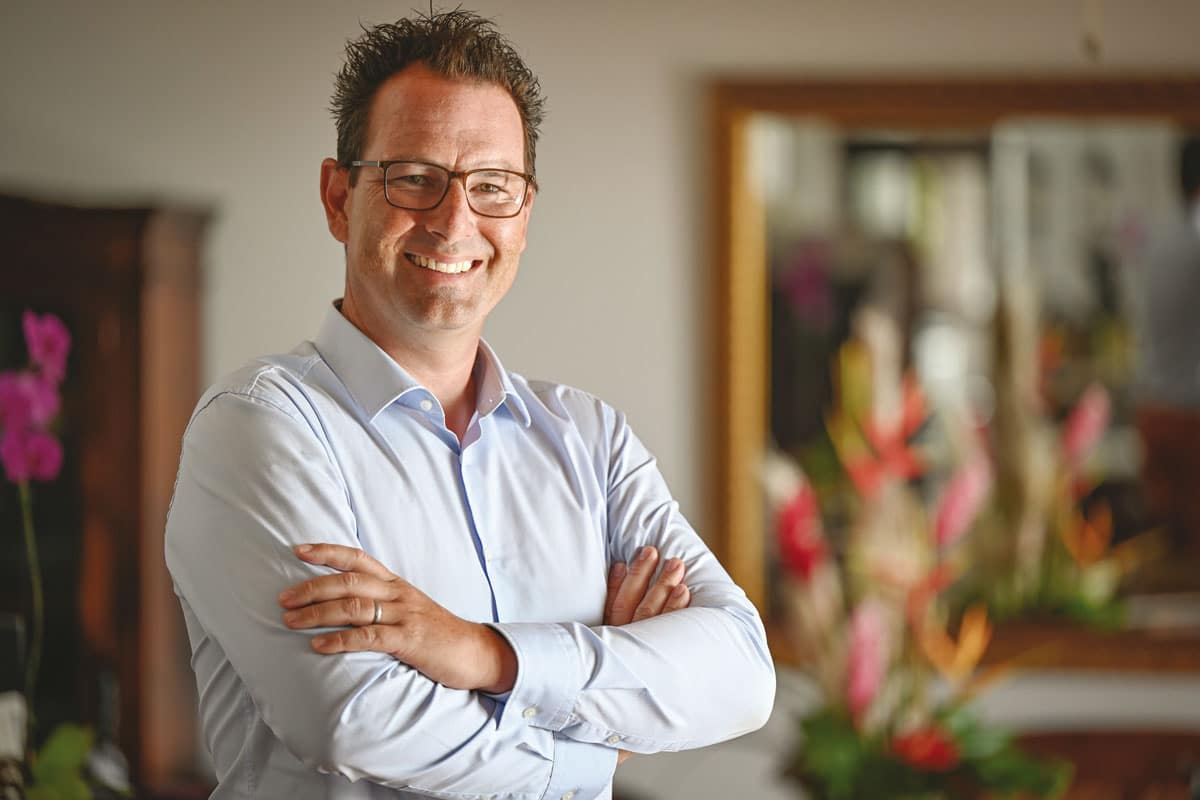
FRÉDÉRIC KUHRY, CO-FOUNDER AND MANAGER OF BLUE MARGOUILLAT
“We have been sensitive to sustainable tourism and this eco-responsible dimension of our activity for ten years. It was legitimate for us to be able to legitimize this commitment through the European ecolabel. Many things were already in place, but we were able to identify possible improvements on certain points, thanks to this labeling process of which, I want to say it, we are very proud. »
Esprit parc national,a brand for professionals who love nature
Created in 2015, Esprit parc national is a commercial brand belonging to the French Biodiversity Office under which products and services can be marketed in the regions and territories of French national parks.. The Esprit parc national Réunion brand brings together 34 beneficiaries, mainly guides, farmers and beekeepers. Jean-Philippe Delorme, director of the Réunion national park, specifies the objective and meaning of this mark.
Who is the Esprit parc national brand for?, what types of activities ?
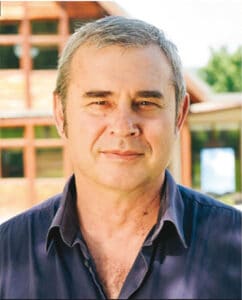
Is the mark granted on the basis of an audit ?
There are several audits and specifications to be respected for each of the activities covered by the brand : accommodation, tourist services, agricultural production. The first audit and renewal audits, which take place every five years, are carried out by our agents. Intermediate checks are also carried out by Ecocert on a random basis..
What should a company do that would like to apply for the Esprit parc national brand? ?
Our sustainable development support service takes care of examining applications. The company must therefore contact him. Initial discussions will take place to see, a priori, if the activity falls within the scope of the brand. If so, a dialogue and a process are initiated to bring the activity into full compliance with the charter and prepare it for the initial audit.
The brand being national, are there specific criteria for each park ?
Specific criteria, non. But the specifications are designed to correspond to the production specific to a territory. I think, For example, to agroforestry. The specifications are adapted to what may be interesting to develop. The national parks policy is expressed at the level of territories which are different from each other..
Is the Réunion national park looking to develop the brand ?
Not quantitatively. For us, this brand is a tool to support economic players in moving towards the protection of biological balances. We are in a bilateral approach with the candidates. Our goal, there is a meaning behind each of the National Park Spirit markings. This is what matters to us above all.
Does the brand also aim to raise public awareness? ?
Of course. Consumers, by purchasing a product or service bearing the Esprit parc national brand, know that they are making a responsible purchase that helps Reunion Island preserve its natural spaces and promote its cultural practices. It is a form of consumer education.
Benjamin Pause, farmer from Salazie (Angie production and sales site & Benji)
“Most of our products have been labeled Esprit parc national for three years. People from the park came to see how we worked. Their criteria are demanding. For me this logo, it is the image of the natural. It creates a relationship of trust between the park, me and the consumers of my products. I am all the more proud to wear it on my labels as this way of working the land, it was that of my father and my grandfather. »
Responsible purchasing : Reunion Island Roland-Garros airport sets an example
First company in the French Overseas Territories and second French airport to obtain the Supplier Relations and Responsible Purchasing label (RFAR) after Aéroports de Paris, Reunion Island Roland Garros airport is an example, not only for the entire airport community, but for the economic players on the island who are now interested in the approach.
The Supplier Relations and Responsible Purchasing label evaluates the implementation of the 10 commitments of the charter of the same name drawn up by the National Purchasing Council, French professional association of Buyers, with the support of the business mediator, service placed with the Minister of the Economy. Reunion Island Roland Garros airport received this label last November. This is not the first important label that the airport company can boast of. : it also has Airport Carbon Accreditation (reduction of carbon emissions) and ASQ certification (quality of customer experience). But the RFAR is focusing attention for an obvious reason : the contribution of the airport to the Reunion economy. A first study of its socio-economic footprint* had shown, in 2019, that the airport platform and its 110 companies generated 4% of Reunion’s GDP and more than 18,600 direct jobs, indirect and induced, or 6% of jobs in Reunion. A considerable impact. This study will be renewed this year. “We wish, through our responsible purchasing strategy, increase this economic impact so that the airport continues to be a driving force for its suppliers and inspires other clients in Reunion”, declare Joël Imaho, Purchasing Director, et Christian Fouyer, Administrative and Financial Director. For these pilots of the new airport label, no doubt : the more RFAR commitments become widespread, the more the local economy will gain in coherence and efficiency for the benefit of all. The airport now constitutes the model of the RFAR club in Reunion Island created by DEETS** to promote the approach.
The RFAR label, complement to the CSR strategy
What is responsible purchasing? ? “It is a purchase conscious of the impact of the transaction on suppliers and the environment. A purchase that guarantees transparency in the use of funds – public funds in our case – and equal treatment and access to public procurement. It is a purchase that takes into account its local and environmental footprint. It is a relationship with suppliers based on fairness and trust with, especially, payment conditions displayed and respected”, respond Christian Fouyer and Joël Imaho. Average airport payment time : twenty-four days. “The RFAR is an integral part of the airport’s CSR strategy. We embarked on this approach because, due to its economic weight, the airport had to build a responsible purchasing strategy and make it known publicly. »
The professionalization of purchasing
Preparing for the label took a year of work for the airport teams. Goals : complete the purchasing procedures, create an ethical purchasing action plan, develop the management of relationships with suppliers. The latter were questioned about their perception of the airport. All airport management was mobilized. The entire airport organization is in tune with the new rules. “We were mature on all these issues, but it was necessary to formalize what was not. Thanks to new tools, we measure the improvement of our practices and demonstrate our compliance with the benchmark”, underlines Joël Imaho. Tools that have already been used : in February, a first annual audit to monitor compliance with commitments made proved positive. The airport will be audited every year to maintain the RFAR label. “The label is an excellent tool for professionalizing purchasing”, testifies Joël Imaho.
Whistleblowers and a business mediator
Two examples of the change that has taken place : the whistleblower procedure and the appointment of an internal mediator for the amicable settlement of disputes. A reinforced supervision and control system has been implemented to further reduce the risks of favoritism or illegal taking of interest.. Great novelty, the whistleblower procedure allows any agent to report behavior or malfunction subject to questioning in the treatment of suppliers. The internal mediator, Frédéric Chabriat, Director of Commercial and Real Estate Operations, followed training in business mediation at the Institute of Public Management and Economic Development (IGPDE). “My legitimacy is in my neutrality. Indeed, I am not involved in company purchasing. In a confidential setting, mediation allows you to prevent and/or resolve a dispute, restore dialogue and help the parties find a satisfactory negotiated solution together, realistic and sustainable. My professional experience, after more than 21 years at the airport, taught me a lot about human relations. In the event of litigation, I can intervene on request with the agreement of both parties”, explains Frédéric Chabriat, which has not been requested since obtaining the RFAR label.
Reconciling local purchasing and respect for the environment
Two major current projects concentrate the airport’s RFAR commitments : the new arrivals terminal and protection of the coastline. The airport has been a member of the Stratégie Bon Achat association for several years. (SBA) which promotes access for small businesses-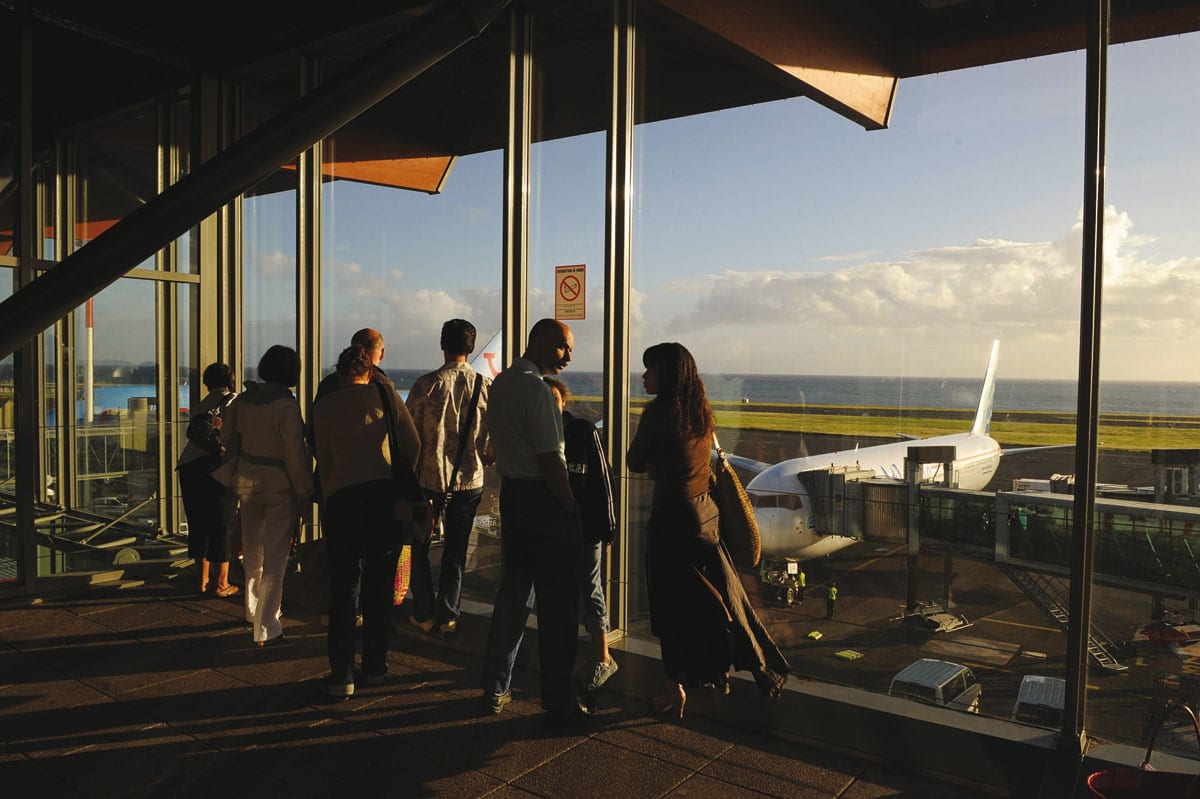
*The socio-economic footprint of an economic activity in a territory assesses the cumulative wealth that it produces and distributes through its purchases, of consumption linked to the direct and indirect employment that it generates and through its taxes.
** Regional Directorate of the Economy, of Employment, Labor and Solidarity
More information on the site : www.rfar.fr
“I like this notion of committed commerce”
Bruno du Boisguéheneuc created Essentiels Conseils & Strategies last year. Several missions and training on valuable mentions and standards in a vocational school in the South demonstrate the real need for information and support from local stakeholders on this subject.. Bruno du Boisguéheneuc is now looking for partners to develop the inventory of labels and to develop his unique and very comprehensive training offer in this area..
How did you become interested in this topic of labels? ?
I work with a database that has existed for a long time. In a previous company, I had the opportunity to work for the Ministry of Overseas Territories on the establishment of a label which was to be called France Saveur d’Outre-Mer. This project was unsuccessful, but I started to be interested in the subject of labels and the steps taken from there. This interest then continued at Biocoop, where I worked and realized that producers and suppliers had an interest in relying on such valorization tools. So this is a subject that has fascinated me for years.. I have a database targeting the agri-food industry, tourism and cosmetics, where I identify more than 650 steps taken. I was of course interested in the Overseas Regions and Territories,, starting with Reunion Island which I know very well having lived there for a long time. I am trying to update it and I am looking for a partner willing to help me develop this census of labels.
What is the purpose of this census? ?
A label is the graphic translation of specifications. The idea is to rely on these references to support a producer, a distributor, even a customer, in its search for a valorization approach. Frozen Island, who I am currently supporting in the development of an organic and vegan frozen food offering*, is a good example of what I propose. Another example, I support a small group of organic producers from Mayotte wishing to promote their production. The organic label is certainly a priority, but consumers today expect something else. They want local, good for the planet, of fairness. We therefore worked on a “score” type tool allowing us to communicate on several characteristics. This project is currently being finalized. I also work for the association of farmer producers of the Grand Sud on a brand deployment project and on a promotion label for an emblematic product of Reunion gastronomy.. Last example : I accompany Nature and Sens, cosmetics store in Saint-Leu which is moving towards an engaged commerce concept. I like this notion of committed commerce. And the idea that everyone can consume according to their convictions and desires thanks to labels. This is what I'm trying to promote.
Are there any labels missing in Reunion? ?
I see several. I cite one : a label promoting Reunion restaurants cooking local meat would be welcome. There is a model for this, it is Guyana which created two labels on Guyanese meat : a label for businesses, like there is one here, and a second label for restaurants. In a restaurant in Guyana, you know if your dish is prepared with local meat.
You also offer training on valuable mentions. What is it about ?
Consumer training is a long-term job. There is great consumer interest in labels and, wider, for information on labels. I had confirmation of this in the few test workshops on food products that I led and which worked very well.. Reading a label is more complicated than you imagine. But it is also the way to choose with full knowledge of the facts. For distributors and producers too, there is an interest in controlling this data : shared knowledge in this area represents a plus in the relationship between buyers and suppliers. This is work that I would like to generalize. I have designed a very precise program of training modules covering all aspects of the issue. I am also looking for a partner to develop this training offer.
* See Leader Meeting No. 221, mars 2023.


